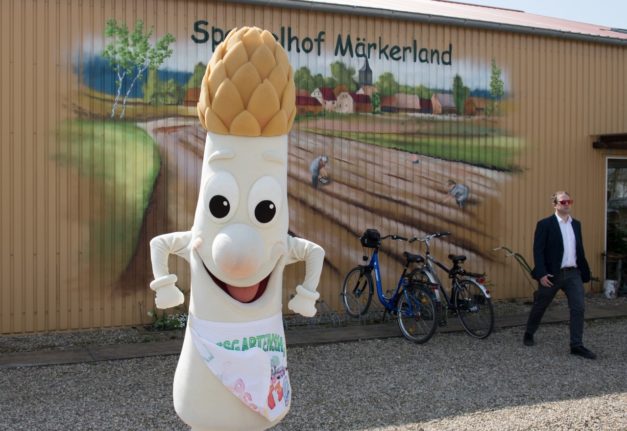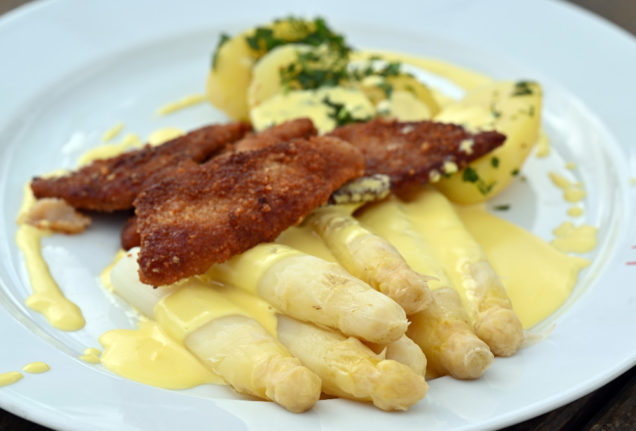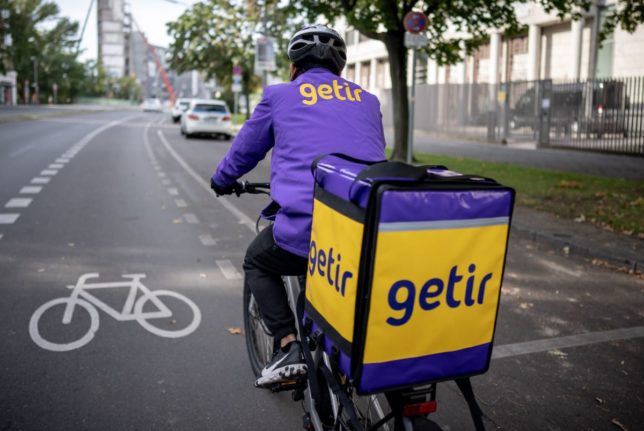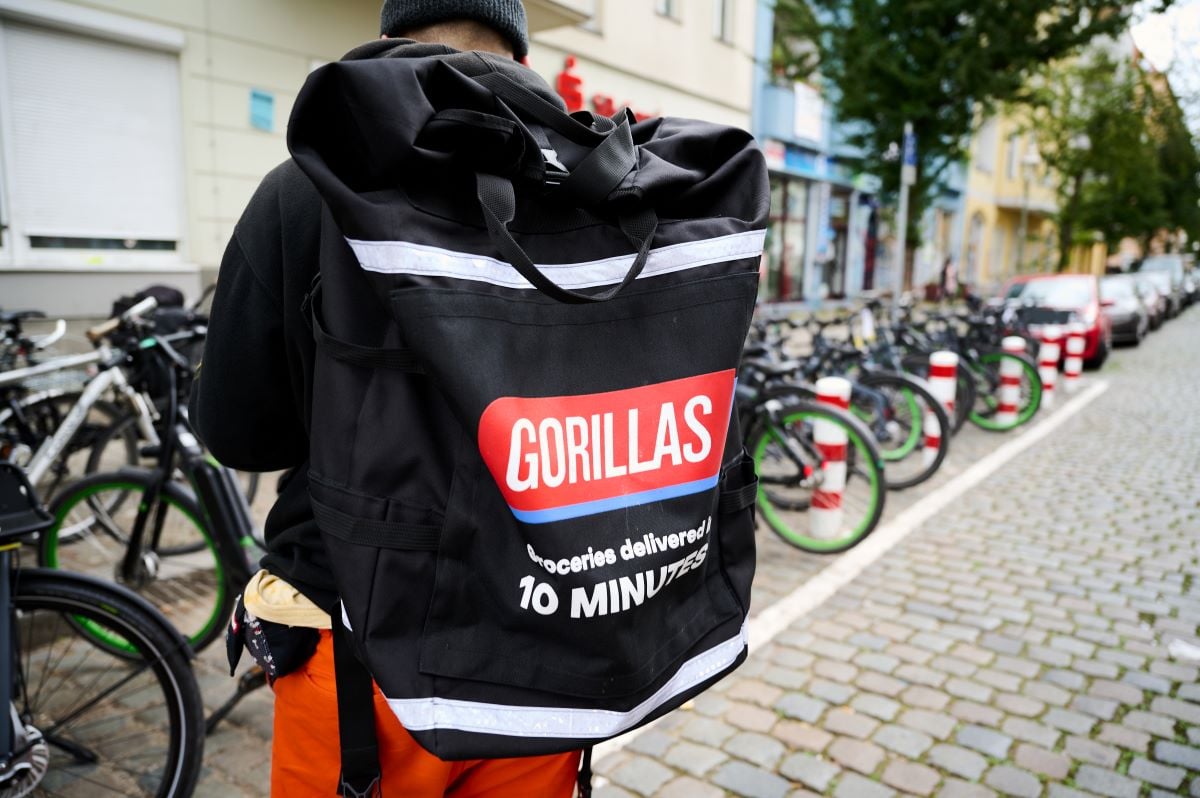The per capita consumption of white Spargel in Germany has fallen recently – and the domestic harvest declined significantly to its lowest level in 10 years. But does this mean that the mass hysteria and media hype over the beloved vegetable is over?
Last year, a Yougov survey commissioned by the German Press Agency showed that the great German love of asparagus might be gradually dying out because the younger generation likes it less.
According to the survey, asparagus is clearly less popular among young adults than among older people, with only 47 percent of 18 to 24-year olds professing their love for the seasonal German vegetable, compared to 74 percent of those over 55.
Asparagus farmers have also noticed the scepticism among young people during this Spargelzeit, which lasts 12 weeks and typically runs until June 24th.
“Basically, there are many older people who eagerly await asparagus in spring, peel it themselves, prepare it lovingly and celebrate eating it. Asparagus has the aura of a feast for them,” said Jürgen Jakobs, Chairman of the Beelitz Asparagus Association.
“But on the other hand, there are people, especially younger people, who find eating asparagus too elaborate.”
‘Luxury item’
The growing area in Beelitz, Brandenburg, near Berlin, is one of the best known in Germany. Yet the asparagus cultivation area here will continue to decrease, Jakobs said.

Currently, there are around 1,500 hectares; compared to the height of the season in 2020, when there were around 2.000 hectares.
“There was an overall decline in asparagus consumption in 2022 – both domestic and imported. This was probably mainly due to the reluctance to buy because of the Ukraine war and the spreading fear of crisis and inflation,” said Jakobs.
“People continue to buy potatoes, milk and butter, but when it comes to asparagus, which tends to be a luxury item, they are perhaps more inclined to cut back.”
Still, Jakobs doesn’t think that Germans are going to fall out of love with their “white gold” anytime soon.
“We are not fooling ourselves: The fuss about white asparagus is a Central European phenomenon in Germany, Austria and Switzerland. Even the Dutch eat only one-sixth of what the average German eats,” Jakobs said.
READ ALSO: Spargelzeit: Six things to know about the German love affair with asparagus
Competition with green asparagus?
Could people in Germany turn their backs on white asparagus, opting for its easier to cut – and chew – counterpart, green asparagus?
“Many immigrants only know green asparagus, which is less seasonal, more versatile and easier to prepare – even on the grill, for example.”
In terms of buying behaviour, a trend towards green asparagus is emerging, said Jakobs. Green asparagus used to have a market share of only 5 to 10 percent, but now it is already around 20 percent.
“Green asparagus has the great advantage that you don’t have to peel it,” said Gunther Hirschfelder, a cultural scientist from the University of Regensburg.
New eating styles?
It also doesn’t fit into the eating styles of younger people in Germany, he said.
“The classic German setting of eating asparagus in the tradition of bourgeois cuisine with meat, vegetables, a side dish and sauce as well as cutlery and a glass of wine is being totally broken up,” explained the author of the book European Food Culture: A History of Food from the Stone Age to Today
“People under 30 tend to eat more throughout the day, like all-in-one food from a bowl,” said Hirschfelder.
For this age group, “It should be quick, maybe even “to go” – even without too much cutlery. Whole sticks that you have to cut are impractical. It doesn’t fit at all with playing with your mobile phone while eating. They need things they can best eat with a spoon.”
READ ALSO: Only in Germany: McDonald’s begins offering ‘Spargel Burger’

Today, he says, asparagus as a seasonal vegetable is the subject of a fired debate over hired labour.
“The images of people who are carted in buses and then have to pick asparagus in German fields with bent backs are closer to us. Asparagus has suffered image damage, especially among young people, as a vegetable of social inequality.”
READ ALSO: How Greek farmers feed Germany’s asparagus habit through the winter
German asparagus growers are trying to turn this image around, and proclaimed May 5th as the Day of German Asparagus.
One of the slogans “Go for our local hero rather than a global player” tries to hone in on asparagus as Germany’s longtime homegrown vegetable.
This is coming from a country which still prizes its yearly asparagus kings and queens, usually young people from Spargel growing regions who cut a ribbon each year to proclaim the start of the annual harvest.




 Please whitelist us to continue reading.
Please whitelist us to continue reading.
Member comments